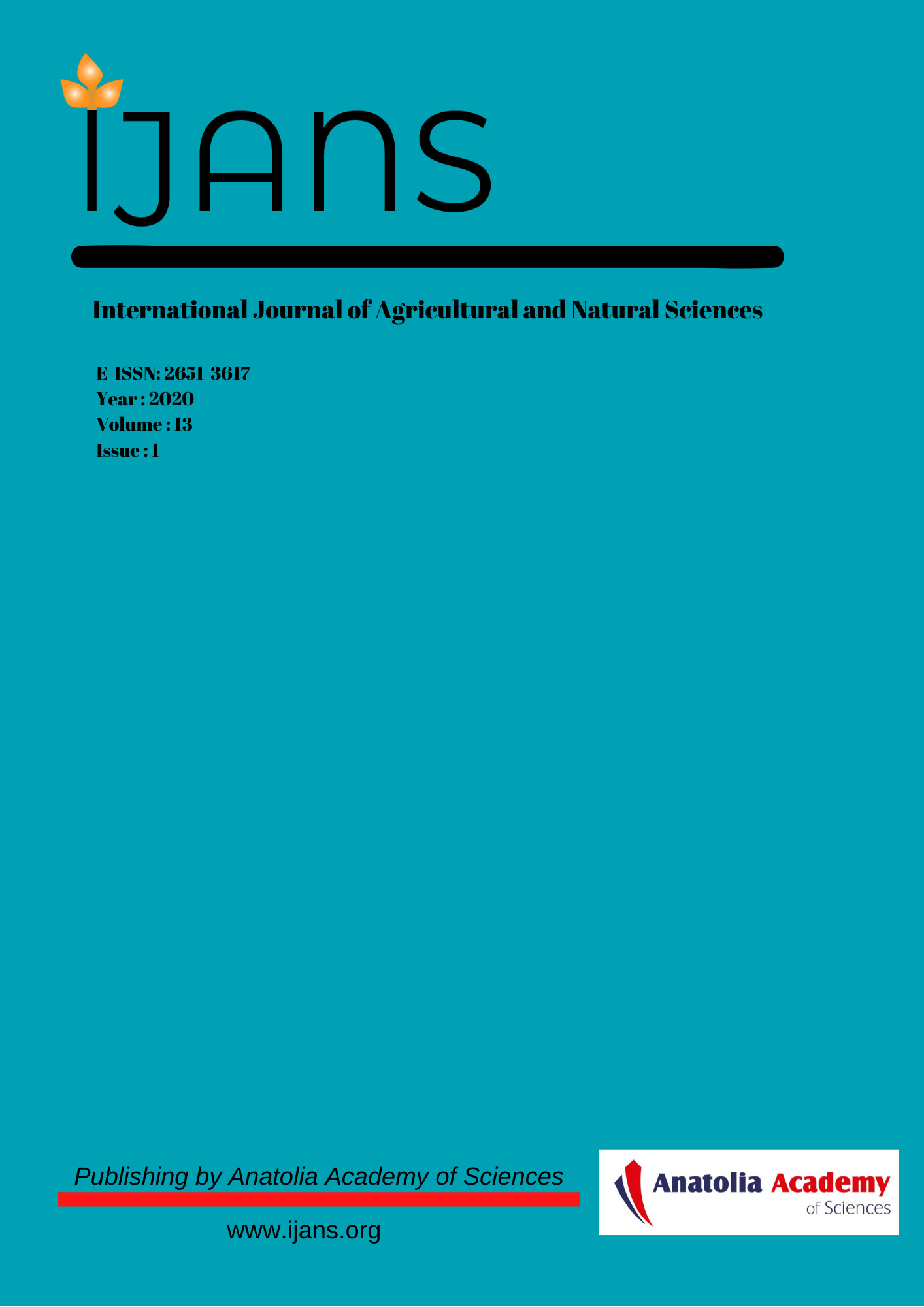
International Journal of Agricultural and Natural Sciences
Yazarlar: ["Tayyaba Bajwa", "Sumaira Mazhar", "Aisha Qurashi"]
Konular:-
Anahtar Kelimeler:-
Özet: Globally rapid industrialization and urbanization is sole responsible for water pollution. Being the backbone of our developing economy, textile industry is main inception of water pollution. Industrial effluent-containing dyes are harmful to both biotic and abiotic components of our surrounding environment. The textile waste contaminated water with dyes results in harmful effects on the plants growth. This study was designed to investigate microbiological removal of dyes by using indigenous microbes. Isolation of indigenous bacterial isolates was done following microbiological techniques and named as WL1, SM2, SM6 and SL4. Growth of isolates was checked at different pH (6, 7 and 8) and varying temperatures (23 ºC, 37 ºC and 50 ºC) in N- broth media supplemented with and without different concentration of dye (0.01µg/ml, 0.02µg/ml, 0.04µg/ml, 0.06µg/ml, 0.08µg/ml). All the isolates showed optimal growth at 37 ºC and 7 pH. It was also observed that the maximum growth of isolates was shown in the presence of 0.02µg/ml malachite green concentration whereas the higher concentration of dye 0.08µg/ml reduced the growth of these isolates WL1, SM2, SM6 and SL4. Efficacy of these bacterial isolate WL1, SM2, SM6 and SL4 were evaluated on the growth promotion of Triticum aestivum grown in the presence and absence of dyes containing water and monoculture and co culture inoculation for 15 days in lab under controlled conditions. It was observed that growth of plants in co culture inoculation was higher than those plants inoculated with monoculture both in dye supplemented and dye free conditions. Co-culture of local bacterial isolates showed promising potential to increase the plant growth by reducing malachite green’s toxicity.